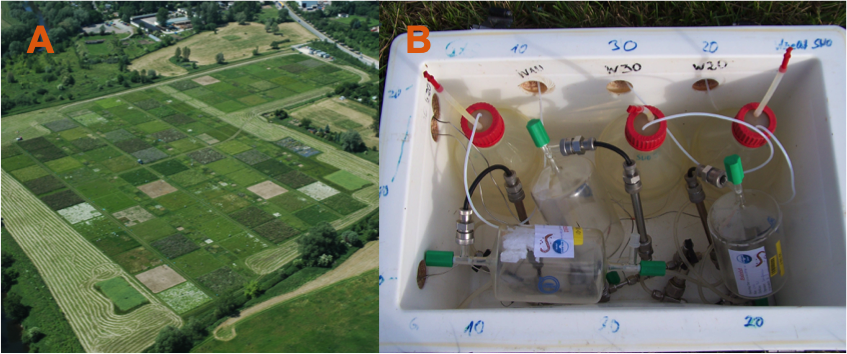PhD project offered by the IMPRS-gBGC in July 2023
Biodiversity impacts on the resistance of soil carbon dynamics to climate extremes |
|
Markus Lange
,
Anke Hildebrandt
,
Gerd Gleixner
|
Project descriptionSoils store more than two third of the terrestrial organic carbon. However, soils can act as both as carbon source and sink, depending on the environmental conditions. Thus, in the context of climate change with its accompanied weather extremes, soil organic carbon is particularly vulnerable (Reichstein et al. 2013). On the other hand, biodiversity has been demonstrated to increase ecosystem resistance to such extremes (Isbell et al. 2015) and furthermore, to increase soil organic carbon storage (Lange et al. 2015).To investigate the effect of biodiversity on the stabilization of soil carbon dynamics, this project will take advantage of long-term measurements of dissolved organic carbon (DOC) concentrations, gathered in one of the largest and longest running biodiversity experiment world wide – the Jena Experiment. These measurements from the Jena Experiment will be complemented with i) measurements from different sites having different environmental conditions, and ii) a microcosm experiment, manipulating climatic drivers. The PhD candidate will use classical univariate statistics (e.g. ANOVA, LMM), time series analyses, as well as path modelling to gain detailed insights of the drivers of soil carbon dynamics. By combining the long-term measurements and data from the climate manipulation experiment, this project will improve our understanding of soil carbon dynamics. Working groupMolecular Biogeochemistry at the Max Planck Institute for BiogeochemistryRequirementsApplications to the IMPRS-gBGC are open to well-motivated and highly-qualified students from all countries. For this particular PhD project we seek a candidate with
 A) Areal picture of the Jena Experiment B) Bottles and flasks for soil water and soil gas observations in the Jena Experiment |